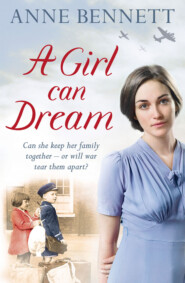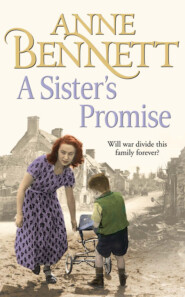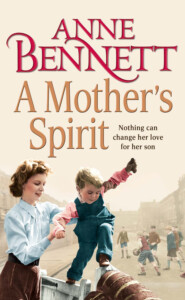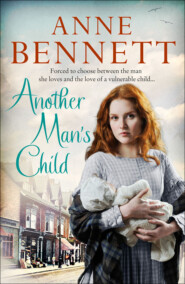По всем вопросам обращайтесь на: info@litportal.ru
(©) 2003-2024.
✖
Keep the Home Fires Burning
Автор
Год написания книги
2018
Настройки чтения
Размер шрифта
Высота строк
Поля
‘Makes you wonder where we’ll all be in a year’s time.’
‘Maybe it’s a good job we can’t see into the future.’
‘I suppose,’ Polly mused. ‘Funny how life turns out. You always seem to fall on your feet, though.’
‘That’s not really fair,’ Marion said. ‘A lot of my good fortune is because I married Bill and he has a good job.’
‘Yeah,’ said Polly. ‘And you kept your legs together till the ring was on your finger, though if I hadn’t been expecting, Mammy and Daddy would never have agreed to me marrying one of the Reillys.’
‘Maybe not,’ Marion said. ‘But that’s not really any excuse for … Look, Polly, when I spotted you staggering down the gravel drive carrying the bass bag you had taken with you into service that afternoon in June 1923, the blood ran like ice in my veins.’ She still carried that mental image with her. Her sister had always had more meat on her bones than she had, and her hair veered more towards blonde than brown, but apart from that they were very similar and both were pretty girls. Polly had just a dusting of pink on her cheekbones, a cluster of freckles below her eyes. That day, though, her face had been bright red and swollen with the tears she had shed and her hair falling over the face, and even her straw bonnet had been askew.
Polly nodded. ‘You knew what it was all about then, didn’t you?’
‘Course I did,’ Marion said. ‘That’s about the only reason that anyone is dismissed from service. Tell you, I was almighty glad that promotion to lady’s maid meant I had a room of my own and I could grab you before you alerted the house, and hide you away in there.’
‘You nearly shook the head from my shoulders.’
‘Can you wonder at it, Poll?’ Marion demanded. ‘I wanted you to say that you weren’t in the family way. I would have been so pleased that day to have been proved wrong.’
‘I never remember feeling so miserable,’ Polly said. ‘And you went wild when you knew who it was I’d lain with. And he didn’t take me down, not really. I mean, he didn’t make me or anything.’
‘Be quiet, Polly,’ Marion said, genuinely shocked. ‘Have you no shame? Don’t talk in that disgusting way. Did you at no time think of the consequences and that your disgrace and shame would taint the whole family?’
‘No,’ Polly said. ‘Not then I didn’t. I loved Pat, see. I wasn’t really a bad girl.’
Marion knew she wasn’t. Polly didn’t have a nasty bone in her body, but she had been very gullible then, and anxious to please when she was younger, and, Marion had to admit, hadn’t changed much. Polly had always wanted to be liked and probably still did.
There was only one answer, one way out of this terrible dilemma. ‘Well, Pat Reilly will have to be made to marry you, that’s all,’ Marion had said, but even as the words were out of her mouth she knew what Polly’s life would like, married to such a man. She doubted she’d ever have a penny piece to bless herself with and a houseful of babies before she was able to turn around.
‘I never minded marrying Pat,’ Polly said, and added a little defiantly, ‘and he didn’t have to be forced either. Despite everything, I still don’t regret that marriage. I was really glad that Lady Amelia gave you leave to go home with me and tell Mammy and Daddy,’ Polly added fervently. ‘I think Mammy might have killed me stone dead that day if you hadn’t been there.’
‘In all honesty I was little use to you,’ Marion admitted, ‘because when Mammy started laying into you and screaming vile and obscene words I never thought I would hear her say, I was too shocked to move. It was Daddy coming in from work that really saved you that day, though he too was shaken to the core at what you had done.’
‘He didn’t lay a hand on me either,’ Polly said. ‘For all Mammy wanted him to, he said there had been enough of that already and he went straight round to the Reillys. Pat always said he was tickled pink, learning that he was going to be a father.’
Pity he didn’t try harder to provide for him then. The words were on the tip of Marion’s tongue, but she bit them back as she remembered the shabby wedding hastily arranged at their parish church, Sacred Heart Catholic Church, on nearby Witton Road. The only people there were Pat’s loud and rumbustious family, who didn’t seem to see any shame in what the young people had done at all. Polly had worn an ordinary dress of tent-like proportions to try to hide her swollen stomach.
Polly was remembering that wedding too. ‘Remember Father McIntyre, with his nose stuck in the air like me and Pat smelled bad or summat?’
‘I remember,’ Marion said. ‘I suppose he was showing his disapproval. After all, he has known you all your life.’
‘He’s known Pat all his life too,’ Polly said, ‘but it didn’t give him any sort of right to behave like that. And then Mammy wouldn’t have any sort of celebration.’ She looked at Marion with a great smile on her face. ‘Pat’s family couldn’t believe it. All the way home they were complaining about it and in the end they went to the Outdoor and got some carry-out and we had our own celebration.’
Marion knew that the Reillys had been astounded because she had heard more than one complain, ‘Not even a drink? Mean buggers!’
However, Clara had thought there was nothing to celebrate. In her opinion, though marriage ? any sort of marriage ? brought partial respectability, the stupidest person in the world was able to count to nine when it mattered. Polly had behaved shame-lessly and that would reflect on her, as Polly’s mother, and no way did she feel like celebrating that fact.
Marion thought, though, that Polly had paid a heavy price for marrying Pat Reilly. That vision she had seen of Polly’s life the day she admitted her pregnancy had come true with a vengeance, for the babies came thick and fast. Polly’s first son, Chris, arrived when Marion had been married just two weeks and he was followed by Colm, Mary Ellen, Siobhan, Orla and Jack. When Jack was born something went wrong and Polly was told that she would be unlikely to conceive ever again. Marion comforted her sister, who was distressed at the news, but really she was glad that there were to be no more children as they couldn’t afford to keep the ones they had and over the years she’d had to help her sister out financially many a time.
Later that night she told Bill the news about the boys’ jobs and he too was glad that life might get a bit easier for them.
‘I’m sure Pat could have done more, and sooner than this,’ Marion said. ‘Course, if I say anything to our Polly she defends him to the hilt and claims he is trying to get work.’
‘Well, he may be,’ Bill said. ‘This is a major slump, you know. Jobs aren’t that easy to come by. Pat Reilly isn’t the only one unemployed today.’
‘He’s the only one married to my sister,’ Marion snapped. ‘Anyroad, when they haven’t food to put on the table you will see the man in the pub. You told me that yourself.’
Bill had indeed told her that, as he’d also said that Pat would often make a half-pint last all evening, but she chose not to remember that. In her eyes he was the man that had taken her young sister down and Bill doubted that she would ever really forgive Pat for it.
In bed that night, after listening to a broadcast that said if war was declared there would undoubtedly be raids from the air, Marion hoped that war would somehow be averted. It had been German planes that had bombed the Spanish town of Guernica two years before, in support of the dictator Franco, and many seemed to think then that Germany was showing the world what they could do.
Marion, remembering the newspaper pictures of the devastation, the town nearly razed to the ground, and knowing the numbers killed and badly injured, knew full well that what had been done in Spain could be done in Birmingham and other towns and cities if Britain were to declare war. She knew she would be worried chiefly for her family, but she didn’t want anything to happen to her home either. It wasn’t just bricks and mortar, it was where Bill had taken her after their marriage and she had taken pleasure in raising her children. All her dearest memories were wrapped up in that house, and these memories now crowded into her brain, driving away sleep.
She recalled that she had been in a fever of impatience to see where they would be living and so Bill had brought her here a week before the wedding. She knew the house was on Albert Road and that ran from the entrance to Aston Park to Witton Road, near to the vast array of shops on the Lichfield Road. It was wide enough for trams to run down the centre of it, and smallish factories and shops were mixed among the housing: a wholesale grocers, Marion noticed as she’d walked down the road arm in arm with Bill that first day, a clinic, a small factory and, across the road, a garage and repair shop and a sizeable office block.
The house itself was red brick, two-storeyed, with wide bay windows to the front, set back a little from the road behind a low grey stone wall. An entry ran down the side, which Bill told her was shared between their house and the one next door, and which led to the back gardens. Marion had loved it at first sight.
Bill had led her over the blue-brick yard to the white front door with an arch above it and a brass knocker and letterbox. She noticed the step needed a good scrubbing. Inside, the hall was decorated with black and white tiles. Stairs led off the right and there was a door to the left. When Bill told her that was the parlour she couldn’t believe it. A parlour! And she opened the door to have a look and gave a sigh of contentment. Of course it would only be used on high days and holidays. But just to own a parlour raised a person’s status.
A short corridor led to the back of the house. The room at the end was where Bill said they would spend most of their time, though Marion was surprised when Bill told her that she wouldn’t be cooking on the range set into the fireplace, but on a brand-new gas cooker in the kitchen. Marion remembered how nervous she had been. She had never had a gas cooker before and wasn’t at all sure that it was safe, but Bill assured her that it was, that it was the latest thing, and she had found it so easy to use after a very little while.
Bill had also opened the door to the cellar as they went towards the kitchen and Marion had thought that that would be where the coalman would tip his load because she had seen the grating just to the side of the bay window. But Bill had ordered a shed to be erected in the back garden for the coal: he didn’t think it healthy to have all that coal dust swirling in the air inside the house. Marion thought he was being overcautious until she remembered both Bill’s parents had died from lung disease. Then she could more understand his concern.
Marion enthused over the house to her parents: ‘A sizeable kitchen and a scullery and a yard, and a lovely little garden at the back, and upstairs three large bedrooms and a bathroom, no less, and even hot water from this geyser on the wall you light when you want a bath or owt, and electric lights all over the house …’
She knew her parents would be glad at least one daughter was being looked after properly by her husband.
A week later Marion married Bill Whittaker, a man her parents approved of, who she had been courting for six months, and who was in full employment in a brass foundry. Her wedding day was a sharp contrast to her sister’s. She had worn a white dress that she was entitled to wear, which finished daringly halfway down her calf, and a veil fastened to her hair with a halo of rosebuds. The reception was well attended with family, friends and neighbours to toast the bride and groom’s health.
Polly hadn’t been allowed to go because she was too near her time and, Clara said, not fit to be seen. She thought it scandalous that Polly would go about without a coat to cover herself up, but Marion knew that she probably hadn’t the money to buy a coat that would fit her swollen body.
When Polly moved into Upper Thomas Street, just a few months later, the dissimilarity in the two sister’s lives was even more obvious. Marion had indeed fallen on her feet and anyone but Polly might have been envious, but she had never shown that.
As Marion drifted to sleep she wondered if she’d have been so generous that if the positions had been reversed.
Despite the war talk around them, Magda and Missie were very excited as June approached. Their seventh birthdays were in the first week and then just two weeks later they were going to make their First Holy Communion. The whole class at school had been preparing for it for months.
One of the things they had to know was their catechism, and Magda and Missie had tried really hard to learn it because sometimes the classroom door would open suddenly and Father McIntyre would be there to test everyone.
The whole class would be on edge – even the teacher looked all tense and stern, Magda noticed ? as Father McIntyre would point at the children at random and fire questions from the catechism at them. Magda would feel as if she was sitting on hot pins because she was pretty sure that if the priest pointed at her and barked out a question, her mind would go blank. So she avoided his eye at all costs and was mightily glad he never chose her. He seemed more interested in the boys, who often gave wrong answers and didn’t seem to care. She knew, though, they would get it in the neck from the teacher later.
There was another trial to go through first before Communion and that was confession. The twins were familiar with the little wooden box in the church where the priest went in one side and they would have to go in the other and tell the priest all the bold things they had done.
‘It won’t be so bad when we’re going every week or so,’ Missie said as they made their way to school the morning that they were going to confession for the first time. ‘I don’t know that I can remember what I have done wrong over the past seven years.’
‘Not a lot, I wouldn’t have said,’ Sarah told her. ‘You never seem to get into trouble.’
‘Not like me,’ Magda said gloomily. ‘Grandma Murray called me a limb of Satan last Sunday.’











